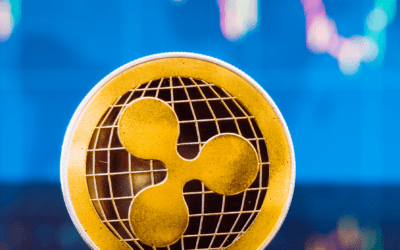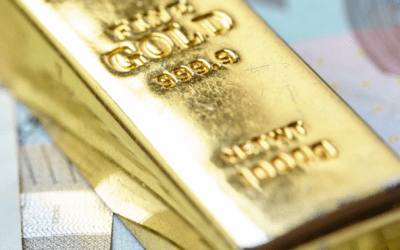Dateline: Kuala Lumpur, Malaysia
Things have gotten pretty cheap around here lately. By some measures, as much as 25% cheaper. Here in Malaysia, expats and foreign visitors have had quite a year as the Malaysian ringgit has declined more than 25% in value from 3.15 ringgit to the US dollar one year ago, to 3.91 ringgit to the dollar today. It seems that with every passing day, the ringgit falls further, spurred in part by lessened demand for oil, political issues, and the strength of the US dollar. I shared earlier this year that I believe much of Europe is on sale right now due to weakened foreign currencies as the US dollar enjoys a temporary bounce as the safest currency in a bad neighborhood of “race to the bottom” fiat currencies. While the euro has picked itself up from the depths of multi-year lows, many lesser currencies continue to stumble. I’ve been eyeing several properties in Budapest lately due to Hungary’s flailing currency; even an insane government isn’t enough to keep me away from a highly livable European capital where a small apartment right next to the opera can cost as little as $50,000. However, there are several currencies that are so far gone right now that I believe there is a real opportunity to plant some new flags and take advantage of very good currency valuations. It’s important to distinguish the difference between a “failing currency” and a “falling currency”. I’m not one for catching falling knives, and I don’t recommend making investments in currencies like the Iraqi dinar that are all hype and no substance. However, a currency that has fallen can be taken advantage of as a way to move assets in an overvalued fiat currency into an undervalued fiat currency as a sort of arbitrage. Such investments aren’t appropriate for an end-of-the-world strategy, but make pragmatic sense for your cash positions. Let’s review three falling currencies and the opportunities they present…
Malaysian ringgit
As mentioned, the ringgit is on a downward spiral. Just one year ago, it was 25% stronger. Even in the light of a new 6% GST here, prices for those spending in US dollars have decreased dramatically. This trend has only picked up pace in recent months, largely due to short-term factors. The reality is that Malaysia had one of the more sane valuations in Asia to begin with. Real estate here is not exactly cheap, and I expect it to go down, but markets here are largely accessible to foreigners when compared to fellow ASEAN members like the Philippines. Real estate in Asia is mostly overvalued in my opinion (save for Cambodia), but Malaysia is one of the more reasonable case studies. However, we have previously discussed that the best way to profit from a falling ringgit is to live in Malaysia. If you like the idea of living in Asia, Kuala Lumpur and Penang are highly livable, highly civilized cities worthy of consideration. Short of starting the next Facebook or depositing millions, you won’t get residence in Singapore. If you’re younger than 35, you can’t get residence in the Philippines; those older may prefer Malaysia’s diversity and excellent travel connectivity. And a second residence visa in Thailand requires a six-figure sum. On the other hand, Malaysia’s MM2H visa is essentially a retirement-style visa but is available to anyone of any age. Malaysia is notoriously open to all nationalities; heck, just about anyone can visit as a tourist. It requires only proof of 10,000 Malaysian ringgit per month income from almost any source as well as a 150,000 to 300,000 ringgit bank deposit depending on your age. With the ringgit at practically 4:1 against the dollar, an expat aged 50 or older could deposit barely US$38,000 into a Malaysian bank in exchange for a ten-year residence permit. Those under 50 would need around US$76,000. This money isn’t a donation, but basically a vote of confidence in the country and an insurance policy in case you ever request public assistance. It’s still your money, and you can take half of it back to pay for medical care or to buy a home. Speaking of medical care, even if the idea of living in Malaysia doesn’t appeal to you, medical care here is dirt cheap, and the quality is excellent. Prince Court Medical Center is the #1 rated medical tourism facility on earth, and prices here are as much as 90% less than in the Land of the Free.
Colombian peso
Talk about a free fall. Since my fact-finding visit to Bogota six months ago, Colombia’s peso has fallen more than 25% against the US dollar. It literally gets worse every day; heck, it’s down 10% in barely a month. Colombia has a long reputation for being a dangerous place as the stink of Pablo Escobar refuses to go away. However, anyone who actually spends time in Colombia quickly realizes that cities like Bogota and Medellin and largely safe provided you stay out of the slummy neighborhoods. I have numerous expat friends living in Medellin now; they constantly rave about it. Unlike Malaysia, real estate in Colombia is cheap if you stick to the right areas. While there is always a “gringo tax” to worry about when looking at properties online, being on the ground largely alleviates that if you know the right places to look. For example, I just looked at a halfway decent condo just outside of Medellin’s popular Poblado district that’s selling for barely $50,000. That particular apartment needs a few cosmetic improvements and a few years for the neighborhood to reach top-tier status, but it’s a great deal for anyone looking for decent rental yields or as a crash pad for living in Colombia. Considering the peso is going down every day, real estate prices similarly go down every day as most deals are priced in pesos, even if some prices are presented in US dollars. Bogota is one of the more expensive cities in the region, but smaller expat-friendly cities like Medellin offer a lot of potential if you have dollars to spend. Purchasing US$200,000 in Colombia real estate entitles you to instant permanent residence and Colombian citizenship in five years. If you have a mere US$23,000 at today’s exchange rates, your investment qualifies for citizenship in ten years. In fact, I’m so bullish on Colombia that I’ll be exploring Colombia real estate deals with my private Nomad Society Members later this year.
Turkish Lira
This one is more of a long shot, but I still believe there is long-term potential in Turkey even as the Turkish lira sinks like a busted drug boat. The lira is now almost 3:1 against the US dollar; that’s 27% less than when I was in Istanbul last November and a two-fold drop from my first visit to Turkey several years ago. Of any of these three falling currencies, Turkey’s looks the most like the proverbial falling knife I often refer to. The government made headlines last year when it cracked down on political protests via social media and declared its intentions to inch away from its highly secular image. Still, people on the ground in Turkey know one thing: it’s still a safe haven for Muslims from the Middle East. For the same reasons many Christian expats wrongly dismiss Malaysia as a place to live due to it being a “Muslim country”, there are plenty of guys in Saudi Arabia and Bahrain with an escape plan to Istanbul if things at home ever get crazy. Turkey merges the benefits of Muslim infrastructure with less authoritarian rule than the people who are moving and investing there. Real estate in Turkey has an incredible history of growth. Istanbul is a huge city that has a few areas to avoid – namely those in areas with lots of poor immigrants – but also has a lot of growth potential. By purchasing roughly 100,000 lira in real estate, you can qualify for a Turkish residency visa and citizenship in five years so long as you spend part of each year in the country. At these rates, that’s a mere US$37,000 investment for residency and future citizenship in a country with an average passport. One interesting thing I noticed about Turkey real estate on my last visit was that a few owners are actually willing to finance half of the purchase price over the course of 1-2 years, allowing you to pay part of the purchase price at today’s exchange rate and have the rest dollar cost averaged if the lira declines further. As with anything, there are no guarantees these currencies won’t continue to fall. However, there are some solid fundamentals for each country, particularly Malaysia and Colombia. Additionally, the residency and citizenship benefits offered under each of these programs make taking a reasonable currency bet worth it. There wouldn’t be much to complain about if your $23,000 investment into Colombian pesos declines to $21,000 but helped you obtain a Colombian passport.









